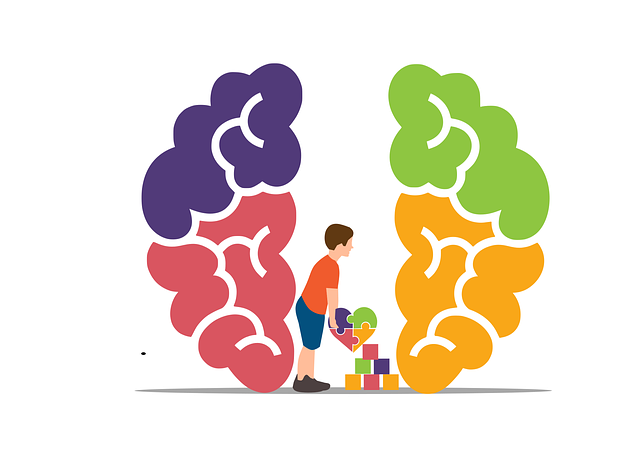Emotion regulation is a core component of mental wellness and Westminster Relationship Issues Therapy (WRIT), empowering individuals to understand, manage, and adapt their emotional responses. Through techniques like cognitive reappraisal, mindfulness, and self-care practices, clients gain emotional control, enhance resilience, and improve relationships. WRIT integrates these strategies to address complex interpersonal issues, improving therapeutic outcomes and reducing burnout risk for mental health professionals.
Emotion regulation is a cornerstone of mental well-being, playing a pivotal role in therapeutic interventions. This article explores techniques that teach individuals to manage their emotions effectively, focusing on their application within the context of Westminster Relationship Issues Therapy (WRT). By understanding the significance of emotion regulation in WRT, practitioners can employ practical strategies to help clients navigate and resolve relationship challenges. We delve into these techniques, offering insights into how they can be integrated for optimal therapeutic outcomes.
- Understanding Emotion Regulation and its Significance in Therapy
- Practical Techniques for Effective Emotion Regulation Teaching
- Integrating Emotion Regulation Strategies into Westminster Relationship Issues Therapy
Understanding Emotion Regulation and its Significance in Therapy

Emotion regulation is a crucial aspect of mental wellness and an integral part of Westminster Relationship Issues Therapy. It refers to the process of understanding, managing, and modifying one’s emotional responses in various situations. By learning effective emotion regulation techniques, individuals can gain better control over their feelings, leading to improved overall well-being. This skill set is particularly beneficial for navigating relationship challenges, as it enables people to react constructively rather than reacting impulsively.
In therapy sessions, teaching these techniques becomes a powerful tool for personal growth and healing. Therapists often incorporate strategies from the Public Awareness Campaigns Development and Mental Wellness Podcast Series Production to raise awareness about emotional intelligence and its significance in managing daily stressors. Through practice, clients can develop resilience, enhance their ability to cope with difficult emotions, and foster healthier relationships, ultimately transforming their lives for the better.
Practical Techniques for Effective Emotion Regulation Teaching

Teaching effective emotion regulation techniques is a powerful tool for individuals seeking to manage their mental health and navigate challenging Westminster relationship issues. At its core, this process involves equipping people with practical skills to recognize, understand, and respond to their emotions in healthy ways. One widely recognized approach is based on Mind Over Matter principles, emphasizing cognitive restructuring and mindfulness practices. By helping individuals challenge negative thought patterns and cultivate present-moment awareness, these techniques enable better emotional control.
The Crisis Intervention Guidance plays a crucial role here, providing immediate support during intense emotional episodes. Teaching simple breathing exercises, progressive muscle relaxation, and grounding techniques can swiftly help individuals calm down and gain perspective. Moreover, integrating Emotional Well-being Promotion Techniques into therapy sessions allows for sustained positive change. Encouraging self-care practices, such as regular exercise, adequate sleep, and engaging hobbies, supports individuals in maintaining emotional resilience over time.
Integrating Emotion Regulation Strategies into Westminster Relationship Issues Therapy

Integrating emotion regulation strategies into Westminster Relationship Issues Therapy (WRIT) offers a comprehensive approach to addressing complex interpersonal challenges. WRIE focuses on improving communication and resolving conflicts, but incorporating mood management techniques can further enhance the therapeutic outcome. By teaching clients effective emotion regulation skills, therapists enable them to navigate intense emotions during sessions and between interactions, fostering healthier relationships.
This integration involves strategies like cognitive reappraisal, mindfulness exercises, and emotional awareness training. These tools empower individuals to manage their moods, anticipate potential triggers, and respond mindfully rather than reactively. Such practices are particularly beneficial in high-stress situations, helping to prevent burnout among mental health professionals while improving their ability to support clients through challenging times. This holistic approach ensures that WRIE remains a powerful and sustainable method for tackling Westminster Relationship Issues.
Emotion regulation techniques play a pivotal role in enhancing therapeutic outcomes, particularly within the context of Westminster Relationship Issues Therapy. By integrating practical strategies discussed, therapists can equip individuals with powerful tools to navigate and manage their emotions effectively. This not only fosters personal growth but also strengthens relationships by promoting better communication and understanding. Through continued exploration and adaptation, these techniques can revolutionize how we approach emotional well-being in both personal and professional settings.












